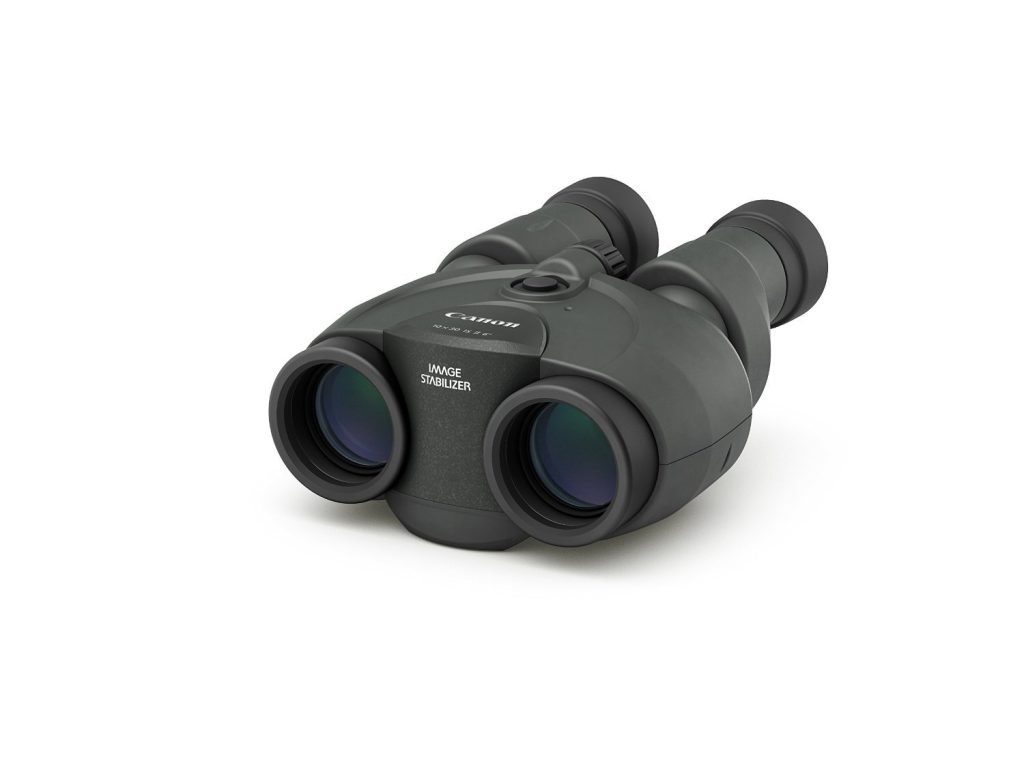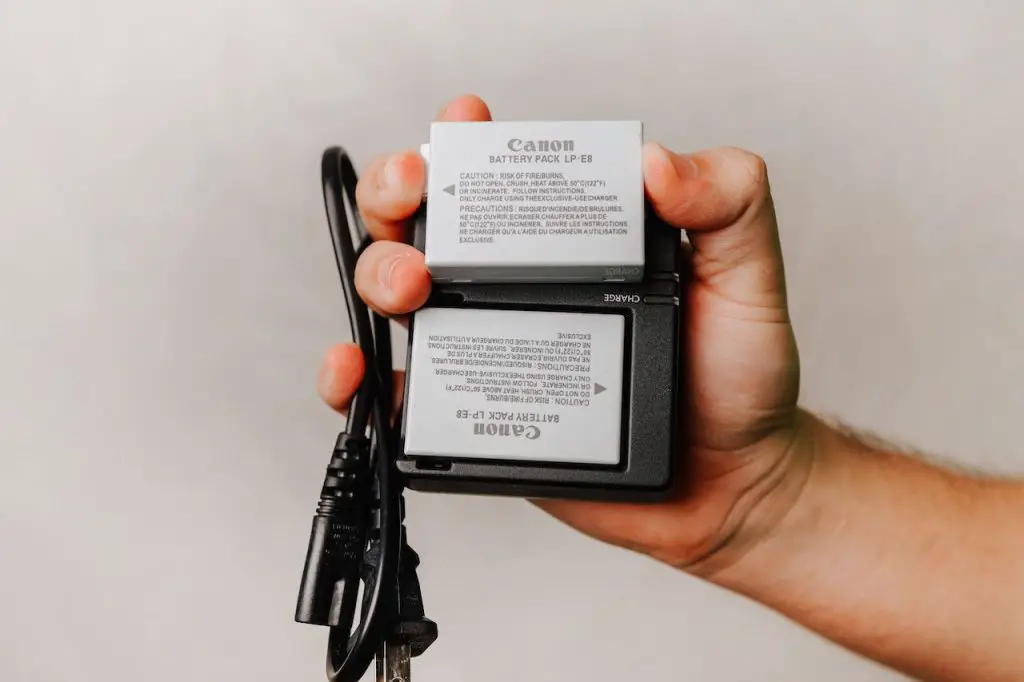Do Binoculars Use Batteries?[Know Everything Here!]

It’s common for new optics enthusiasts to be confused about whether binoculars require batteries or not before buying them.
This guide aims to provide a clear answer to the question:
Do binoculars use batteries?
Quick answer: Contrary to popular belief, not all binoculars require batteries. In fact, most of the binoculars that we use in our daily lives rely solely on their optics and don’t require any batteries. However, some high-end binoculars with advanced features such as image stabilization, digital camera or digital night vision do require batteries. These premium binoculars typically use AA or AAA batteries. Also, Some binoculars like ATN Binox has inbuilt rechargeable lithium Ion battery.
Now, Lets delve into the topic in details:
Types Of Binoculars That Use Batteries.
Binoculars are essential in helping people observe nature and their surroundings, allowing them to see things that would be difficult or impossible to see with the naked eye. But, not all binoculars are created equal.
While most binoculars are designed to function using their optics alone, there are certain types of binoculars that require batteries to operate.
Image-stabilized binoculars and digital binoculars are two examples of binoculars that rely on batteries to function properly. Night Vision binoculars also use batteries for their smooth performance.
Image-stabilized binoculars
An example of a popular image-stabilized binocular is the Canon 18×50 IS II.
This binocular features Canon’s proprietary Image Stabilization (IS) technology, which helps to reduce handshake and provide clear, stable images.
The binocular is powered by two AA batteries, which can last up to 2.5 hours of continuous use.
Digital camera binocular
Now let’s see an example of a digital binocular which is the Sony DEV-5.
This binocular features 10x magnification and 20x digital zoom, allowing users to zoom in and capture clear images and video from a distance.
It also has auto-focusing capabilities, ensuring that images are always in focus.
The Sony DEV-5 runs on a rechargeable 6.8V lithium-ion battery pack, which provides up to three hours of continuous use.
Night Visions
Night Visions devices also use batteries for their performance. Lets see some examples
- ATN BinoX-HD 4-16x Smart Binoculars: These binoculars use internal lithium Ion battery that will keep you hunting late into the evening or those early morning hours, with an incredible 15+ hrs of run time.
- Bushnell Equinox Z Digital Night Vision Binoculars: These binoculars use four AA batteries.
- Pulsar Accolade 2 LRF XP50 Thermal Binoculars: Quick-change rechargeable battery packs provide enough power for up to 9 hours of non-stop operation
- Sightmark Ghost Hunter Night Vision Binoculars: These binoculars use two AA batteries.
- Night Owl iGEN 20/20 Day/Night Vision Binoculars: These binoculars use four AA batteries.
- GT-Thunder Digital Night Vision Binoculars: These binoculars also use 6 AA batteries.
While binoculars that use batteries can offer many benefits, they do have some drawbacks.
One of the most significant disadvantages is that batteries add weight to the binoculars, making them bulkier and more challenging to carry around for extended periods.
Additionally, batteries can be expensive and need to be replaced regularly.
Let’s discuss advantages and disadvantages in detail:

Advantages of Using Batteries in Binoculars:
Image stabilization:
One of the most significant advantages of using batteries in binoculars is poweing image stabilization.
Image stabilization technology uses internal mechanisms to counteract the natural shaking of hands, which can cause blurry images.
This feature is especially useful for activities like bird watching, where steady hands are crucial to getting clear images.
Digital zoom:
Another benefit of using batteries in binoculars is digital zoom.
Digital zoom technology allows users to zoom in and capture clear images and videos from a distance. This feature is ideal for activities like sports events and wildlife photography.
Automatic focusing:
Some binoculars that use batteries also have automatic focusing features.
This allows the binoculars to automatically adjust focus as the user moves around, ensuring that the image is always clear and in focus.
Disadvantages of Using Batteries in Binoculars:
Added weight:
One of the main drawbacks of using batteries in binoculars is the added weight.
Batteries can make binoculars heavier, which can be a significant issue for those who carry them for extended periods.
The added weight can also affect the balance of the binoculars, making them more challenging to use.
Increased cost:
Another disadvantage of using batteries in binoculars is the increased cost.
Binoculars that require batteries are typically more expensive than those that do not.
Additionally, batteries themselves can be costly, particularly if they need to be replaced frequently.
Need for battery replacement:
Finally, binoculars that use batteries require frequent battery replacement, which can be a hassle for some users.
Running out of battery power while using binoculars can be frustrating, particularly if you’re in the middle of an activity like bird watching or hunting.

Types of Batteries Used in Binoculars:
Non-rechargeable batteries
Non-rechargeable batteries, also known as disposable batteries, are designed for single-use and must be replaced when they run out of power.
Common types of non-rechargeable batteries used in binoculars include
- alkaline,(AA, AAA Types)
- lithium-ion, and
- silver oxide batteries.
Alkaline batteries are the most widely used type of non-rechargeable batteries due to their availability and affordability.
Lithium batteries have a longer lifespan than alkaline batteries and can perform better in extreme temperatures.
Silver oxide batteries are often used in compact binoculars due to their small size and low power consumption.
Rechargeable batteries
Rechargeable batteries, on the other hand, can be recharged and reused multiple times.
Common types of rechargeable batteries used in binoculars include
- nickel-metal hydride (NiMH) and
- lithium-ion (Li-ion) batteries.
NiMH batteries are affordable and readily available, but they have a shorter lifespan compared to Li-ion batteries.
Li-ion batteries have a longer lifespan and can hold their charge for longer periods of time, making them ideal for prolonged use.
Are Alkaline Batteries Any Good when used in binoculars?
Yes, alkaline batteries can be a good option for powering binoculars, particularly if you are not using them frequently or for long periods of time.
Alkaline batteries are generally more affordable than other types of batteries and are widely available.
They also have a long shelf life, meaning they can be stored for extended periods of time without losing their charge.
However, if you plan on using your binoculars frequently or for extended periods of time, you may want to consider using rechargeable batteries or lithium batteries instead.
Rechargeable batteries can be more cost-effective in the long run.
They can be recharged and reused many times over, reducing the need for frequent battery replacements.
Lithium batteries, on the other hand, have a longer lifespan and are less likely to leak or corrode.
This makes them a good option for outdoor activities or for use in extreme temperatures.

Why Most Night Visions Use Alkaline Batteries?
Night vision devices often use alkaline batteries because they have a relatively high energy density, which means they can store a lot of energy in a small amount of space.
Additionally, alkaline batteries have a long shelf life and can hold their charge for extended periods of time, which is important for night vision devices that may not be used for long periods.
Furthermore, many night vision devices operate in extreme temperatures and alkaline batteries are designed to work efficiently in a wide range of temperatures.
They also tend to perform better than other types of batteries in cold weather.
Another advantage of alkaline batteries is their widespread availability and affordability.
They can be found in most stores and are usually cheaper than other types of batteries, making them a convenient and cost-effective choice for night vision device manufacturers and users.
The lifespan of Batteries:
The lifespan of batteries in binoculars can vary significantly depending on several factors, such as the type of battery used, usage, and temperature.
Non-rechargeable batteries:
Alkaline batteries typically last between 8-12 hours in binoculars, while lithium batteries can last up to 24 hours.
The lifespan of a battery also depends on usage. The more you use your binoculars, the faster the batteries run out.
Rechargeable batteries:
The lifespan of rechargeable batteries in binoculars can vary depending on the specific battery and how it’s used. However, most rechargeable batteries last between 2-3 hours per charge.
Factors that Affect Battery Life:
- Usage: How often you use your binoculars will have a significant impact on battery life. The more you use your binoculars, the faster the batteries will run out.
- Temperature: Extreme temperatures can affect battery life. Cold temperatures can cause batteries to drain faster, while hot temperatures can reduce the overall lifespan of batteries.
- Storage: The way you store your batteries can also affect their lifespan. Batteries that are stored in a cool, dry place will last longer than those that are exposed to moisture and extreme temperatures.
Are Lithium Batteries Better Than Alkaline Batteries?
Lithium batteries are known to have a longer lifespan than alkaline batteries, which means they may last longer in binoculars.
They also perform better in extreme temperatures, making them a good choice for outdoor use in extreme hot or cold conditions.
Additionally, lithium batteries are generally lighter in weight than alkaline batteries, which can be an advantage for those who value portability.
On the other hand, alkaline batteries are more widely available and less expensive than lithium batteries.
They also have a more predictable discharge rate, meaning they maintain a consistent voltage output over time.
This can be an advantage in situations where it is critical that the binoculars maintain a consistent level of power.
Maintaining Batteries in Binoculars
When it comes to binoculars, the batteries that power them are essential to their operation. Properly maintaining these batteries can ensure that your binoculars function properly and have a long lifespan.
Choose the Right Type of Battery:
Choosing the right type of battery for your binoculars is essential. Make sure to use the type of battery that’s recommended by the manufacturer.
Using the wrong type of battery can damage your binoculars or cause them to malfunction.
Properly Store Your Batteries:
Properly storing your batteries is also critical. Keep them in a cool, dry place and avoid exposing them to extreme temperatures.
Never store batteries in direct sunlight or near sources of heat.
Charge Rechargeable Batteries Properly:
If you’re using rechargeable batteries, make sure to charge them correctly.
Follow the manufacturer’s instructions and only use the charger that’s designed for your batteries.
Replace Batteries When They Are Low:
When the batteries in your binoculars are low, it’s essential to replace them promptly.
This can help prevent damage to your binoculars and ensure that they function properly.
Dispose of Batteries Safely:
When it’s time to dispose of your batteries, make sure to do so safely.
Never throw batteries in the trash, as they can harm the environment. Instead, recycle them at a local recycling center or dispose of them in a battery recycling bin.
Conclusion
There is no one-size-fits-all answer to whether binoculars use batteries or not.
Most binoculars models rely solely on their optical system of lenses and prisms and battery is required.
Only high-end binoculars with advanced features such as image stabilization, digital zoom, night vision technology require batteries to power these functions.
When it comes to battery types, both alkaline and lithium batteries can be used in binoculars, but lithium batteries tend to have a longer lifespan and better performance in extreme temperatures.
We hope that this guide has cleared up any confusion regarding binocular batteries and helped you make an informed decision when selecting a pair of binoculars that suit your requirements.
